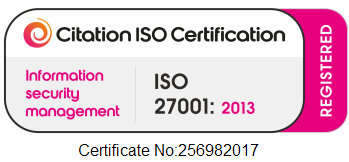Digital ID Check Guide – Everything You Need To Know
As you may know by now Digital ID Checks are the new government-approved method to digitally verify the identity of candidates applying for a job. When you verify your applicants’ identities digitally, you no longer need to meet them in person or check and copy their original identification documents.
But with the recent changes in the law, it’s time employers check the rule book again and take the appropriate action.
The beta version of the trust framework was published on 13 June 2022. However, from 1st October 2022, if employers want to carry out checks by video call, they will need to be in possession of the candidate’s original documents. Inspection of faxed or scanned copy documents via a video call will not be allowed from 1st October.
A small transaction fee is applied wherever the digital identity service is used and this fee is separate from both the DBS fee and the admin fee.
Employers and landlords will be able to work with IDSPs to utilise Identification Document Validation Technology (IDVT) to carry out digital identity checks on behalf of British and Irish citizens who hold valid passports.
Enabling the use of IDVT for Right to Work, Right to Rent and DBS checks will help to support long-term post-pandemic working practices, accelerate the recruitment and onboarding process, improve employee mobility and enhance the security and integrity of the checks.
To become certified against the schemes, IDSPs must meet the criteria in the current version of the trust framework. Depending on the scheme(s) you want to join, you must also meet the Right to Work and Right to Rent schemes and/or DBS schemes. The beta version of the trust framework was published on 13 June 2022.
Find out more on how to become IDSPs.
Benefits of Digital ID Checks:
- Save your organisation time and money by reducing time-to-hire and significantly decreasing the use of internal resources.
- Make it easier for employers to meet their legal obligations. Employers have a legal duty to check their employees’ identities in order to ensure they have the right to work in the UK and as part of the process of applying for criminal record disclosure certificates.
- Reduce the risk of fraud. It’s much more challenging to use a fake identity in a digital identity check than it is in person.
- More convenient for the candidates especially those working remotely from home.
Share this post and follow us on social media!
Like our blogs? Sign up for our newsletter




Comments are closed